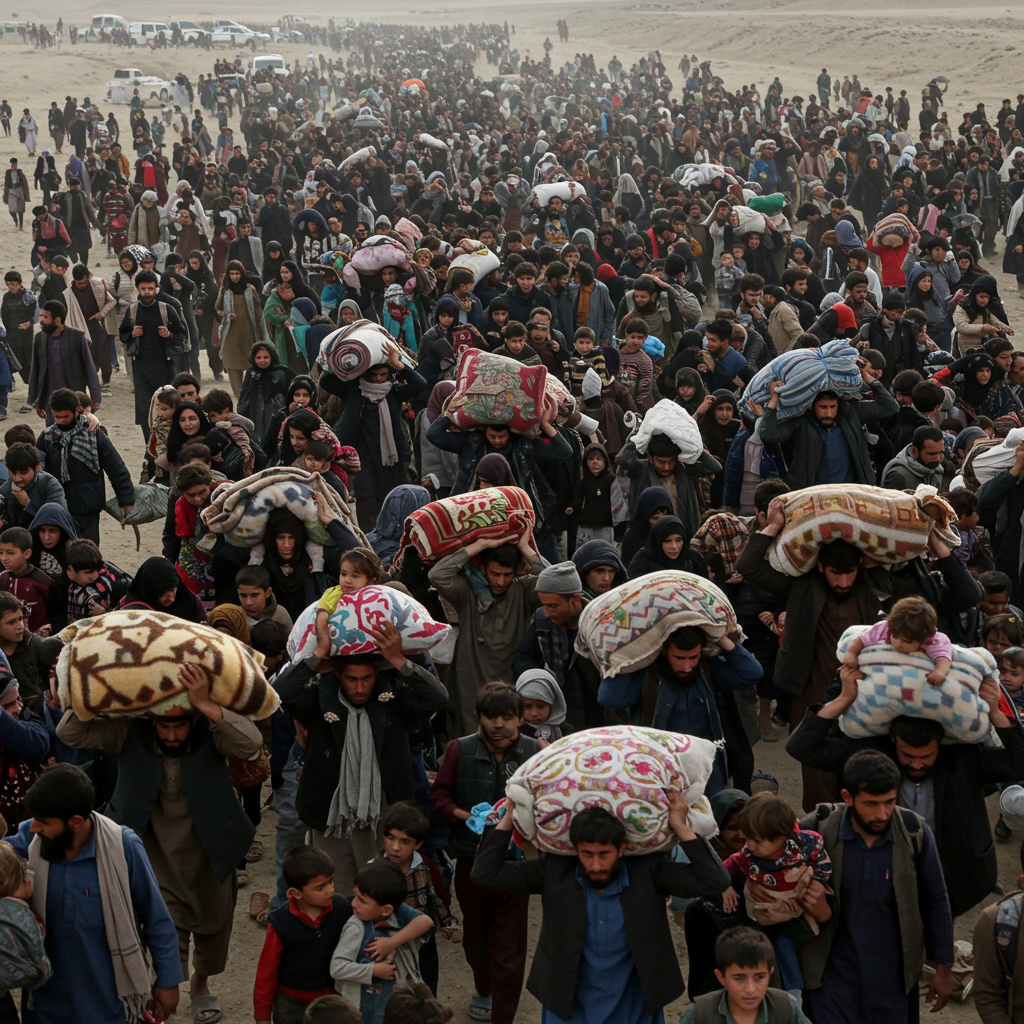Israel’s relationship with the European Union, a vital economic partner and geographical neighbor, is facing its most significant challenge in decades. The ongoing scale of death and destruction in Gaza, coupled with rising settler violence in the West Bank, has dramatically shifted public opinion and political calculations across the bloc, pushing the EU towards considering serious economic measures it has long hesitated to employ.
For years, Israel has primarily looked across the Atlantic to Washington DC for crucial military aid, diplomatic shielding at forums like the UN, and the backing of the world’s most powerful military. However, its economic lifeline is arguably tied more closely to Europe. Approximately one-third of Israel’s total trade, valued at around $27 billion annually in imports alone, is with the EU. Israeli academics rely heavily on grants from the EU’s multi-billion dollar Horizon research fund, and Europe remains the top travel destination for Israeli citizens. As one diplomat noted, geography is immutable, making Europe an essential “gateway” in a region where Israel has few other partners apart from the UAE.
Despite these deep connections, Europe has historically struggled to translate this interdependence into significant political leverage over Israeli policy. This has largely been due to persistent divisions within the bloc, pitting member states with strong historical ties and support for Israel (such as Germany and Austria) or shared nationalist visions (like Hungary) against countries more critical of settlement expansion and the occupation. As former EU policy chief Josep Borrell questioned, if individuals living in illegal settlements can freely travel to and export goods to Europe, how can the EU expect its condemnations to be taken seriously? Israeli Prime Minister Benjamin Netanyahu has, at times, seemed to take European support for granted, reacting dismissively to criticism, even from close allies like France, the UK, and Canada.
However, the relentless severity of the humanitarian catastrophe in Gaza, with reports from the territory detailing tens of thousands of Palestinian deaths, including many women and children, has created unprecedented pressure on European governments. Public outrage is mounting, fueled by images of suffering and near-famine conditions. Polls even in historically pro-Israel countries like Germany show strong majorities supporting measures such as suspending arms sales. This stark reality has forced a re-evaluation across Europe, eroding the traditional consensus of unquestioning support for Israel.
Signs of this shift are increasingly visible. The UK has sanctioned Israeli cabinet ministers, France has openly considered unilateral recognition of a Palestinian state, and the EU has backed sanctions on extremist settlers. But more significantly, the EU is now actively weighing the possibility of deploying its considerable economic weight to influence Israeli actions.
This potential shift gained momentum following a request from the Netherlands, traditionally a steadfast Israeli ally, for an urgent review into whether Israel’s conduct in Gaza has breached the human rights obligations that form an “essential element” of the EU-Israel Association Agreement. This crucial pact underpins free trade, travel, and academic collaboration. The Dutch request received unexpectedly broad support from 17 EU member states, reflecting a growing sentiment that inaction risks Israel continuing to disregard European concerns.
The EU’s own diplomatic service, the European External Action Service (EEAS), has reportedly found “indications” that Israel may be in breach of its human rights obligations under Article 2 of the agreement. This finding was recently presented to EU foreign ministers by foreign policy chief Kaja Kallas. While similar findings have occurred before, the current context of intense public pressure and the worsening situation in Gaza lend this review particular gravity.
Several European governments are now advocating for concrete measures. These proposals range from suspending Israel’s tariff-free access to European markets – a move where the trade imbalance gives Europe considerable leverage – to ending Israeli universities’ participation in EU research funds like Horizon, and even halting visa-free travel for Israeli citizens to European holiday destinations. The latter measure, while potentially less economically impactful than trade restrictions, is seen by diplomats as a way to generate significant public pressure within Israel, as it would be deeply unpopular and immediately felt by many.
While a full suspension of the overarching Association Agreement requires an unlikely unanimous vote from all 27 member states (with countries like Hungary, Austria, and Germany historically opposing such moves), individual components or agreements can be paused with a qualified majority vote (requiring approval from at least 15 member states representing 65% of the EU population). Any formal proposal for sanctions would also need the endorsement of European Commission President Ursula von der Leyen, who sets the agenda for the Council. Although she has described the targeting of civilians in Gaza as “abhorrent” and the use of force as “disproportionate,” she has not yet publicly backed moves towards broad sanctions.
However, calls for action are becoming more vocal. Spain, in particular, has emerged as a strong advocate for a tougher stance, with its Foreign Minister explicitly calling for the immediate suspension of the EU-Israel Association Agreement, an EU-wide arms embargo on Israel, and targeted sanctions against individuals undermining the prospects of a two-state solution. Other nations like Ireland and Slovenia have joined Spain and Norway in recognizing the State of Palestine, signaling diminishing faith in Israel’s commitment to a political resolution.
Ultimately, the question remains whether Europe is prepared to move beyond strong words and utilize its considerable economic and diplomatic tools. The potential use of economic leverage marks a significant moment, suggesting a potential shift in the dynamics of the relationship. Combined with increasing internal protests within Israel against the civilian death toll and the risk of the country becoming a “pariah state,” external pressure from Europe could potentially align with domestic discontent, creating new pressure points on the Israeli government amidst this challenging period.




